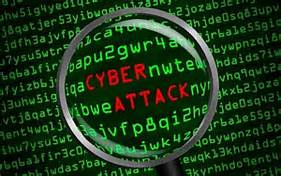By Gabriel Princewill-
Voiced concerns by Whitehall officials that Russia is waging a “campaign” of propaganda and unconventional warfare against Britain raises eyebrows.
Integrated efforts allegedly by Russia to undermine the UK through fake espionage, misinformation, cyber attacks and fake news appears to be shifting the goal post.
A growing scale of Russian threat has ostensibly catalyzed a National Security Council meeting to be chaired by Theresa May within weeks. The objective of the responses is to determine proportionate responses to the threats.The cyber attacks are said to have first been exerted during the recent U.S elections in which Donald Trump stunned his democratic rival Hillary Trump with a magical upset that reverberated throughout international political world.
U.S intelligence officials have attributed the stunning nature of the upset to a Russian led hacking campaign engineered by Putin and his cohorts. The allegation is ostensibly premised on the knowledge that the Russians have the capability to do this, so have done it.However, no evidence, be it superficial, inferential, or conclusive, has been canvassed for the deeply entrenched view strongly presented with an air of dogma, that one could be forgiven for taking it as gospel.
Disturbing Suspicion
Notwithstanding the absence of any tangible proof presented on the public domain, the strong suspicion and asserted claim of cyber attacks and espionage, is disturbing. In a world where evidence has been the longstanding blue print of substantive claims,it is no wonder the Russians have decried the allegations and challenged them to evidence the basis of their claims.
The British and American government at some point will have to feel compelled to either table the evidence or at least give a cogent reason why the evidence they have cannot be made public. Evidence that implicates other parties that may be the source of reliable information for instance, cannot be put on the public domain. The dilemma in such instance being the absence if a verifiable information that deems the accused party culpable of the offence charged.
The extension of the allegation to British companies and institutions affected by these cyber attacks require specific examples too.
The flip side of this coin is that the Russians are not strenuously denying the allegations, but focusing their response on the challenge for the alleging countries to prove their claim. They have denied any involvement, but not gone out of their way to stress their complete innocence in the allegations.
Russia’s Alleged Offensive
Comprising a new Russian offensive Russia have been accused of employing, include state-run news outlets, such as RT and Sputnik; allegedly used to spread propaganda and influence. The eye of media.com approached RT, asking why they have not explicitly addressed the allegation against them, but received no response on this. One would intuitively have expected them to focus a media release aimed directly at expressing the motivation of their collective articles aimed at topics of public interest and not political manipulation as alleged.
We did not get any of that, but retaliatory columns in what has characterized this hybrid, psychological and media warfare, with the cyber element at the heart of the dispute. Indeed if they are innocent, they would be angry, but most important is for us to get to the bottom of the truth and move on to the new year with the facts.

